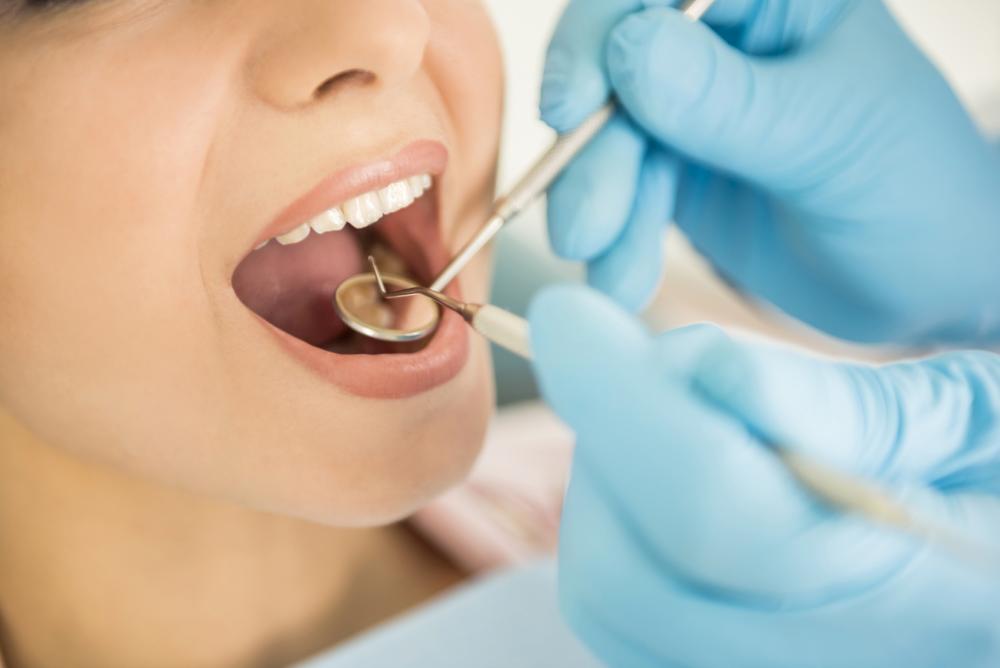Inexpensive Dental Care Options from Leading Dentists Eugene
Inexpensive Dental Care Options from Leading Dentists Eugene
Blog Article
A Guide to Typical Oral Conditions That Require a Dental professional's Care
Understanding the variety of dental conditions that require expert treatment is extremely important for preserving ideal dental health. Toothaches, as an example, can be symptomatic of severe problems such as cavities, broken teeth, or abscesses, each calling for details interventions like dental fillings or root canals. Gum disease, from the beginning of gingivitis to more severe periodontitis, underscores the relevance of regular dental examinations and cleansings. Influenced knowledge teeth and jaw problems can introduce substantial discomfort and difficulties. Ensuring prompt sees to the dental professional can mitigate these concerns efficiently, but just what are the indications and treatments involved?
Toothaches
Toothaches are an usual oral condition that can vary from light pain to serious discomfort, frequently suggesting an underlying issue that needs professional interest. This pain can originate from a selection of sources, consisting of tooth decays, cracked or fractured teeth, and oral abscesses. Each of these problems poses considerable risks if left unattended, possibly causing much more extreme difficulties.
Dental cavities, additionally known as cavities, are caused by the accumulation of plaque that wears down tooth enamel, leading to holes or pits in the impacted teeth. Abscesses are agonizing infections at the root of a tooth or between a tooth and the gum tissue, usually resulting from extreme decay or untreated tooth cavities.
Effective treatment of toothaches includes dealing with the root cause. This might consist of fillings for cavities, crowns for broken teeth, or origin canals and antibiotics for abscesses. Very early intervention by an oral expert can prevent more deterioration and alleviate pain, making sure optimum oral health and wellness.
Gum Tissue Condition
Periodontal disease, a widespread yet often forgotten dental condition, manifests via inflammation and infection of the gum tissues and supporting cells. This problem mainly takes place in two stages: gingivitis and periodontitis. Gingivitis, the milder type, provides with signs such as red, swollen gums that may bleed conveniently throughout brushing or flossing. If left unattended, gingivitis can advance to periodontitis, an extra severe type characterized by the destruction of the sustaining bone and connective cells, inevitably bring about tooth loss.
The key root cause of periodontal illness is microbial plaque, a sticky, anemic movie that regularly bases on teeth. Poor oral hygiene, smoking, hereditary tendency, and certain clinical problems, such as diabetic issues, can worsen the risk of developing periodontal illness. Routine dental examinations are vital for early detection and management of this problem.
Treatment for gum condition ranges from specialist oral cleansing and scaling to advanced procedures like root planing and periodontal surgical procedure, depending on the severity. Keeping great dental health methods, including brushing twice daily, flossing, and making use of a disinfectant mouth wash, can considerably decrease the threat of periodontal disease and promote much healthier periodontals.
Cavities
Dental caries, likewise known as oral decays, are a typical dental problem characterized by the destruction of tooth enamel as a result of acid-producing germs in the mouth. These bacteria prosper on sugars and starches from food and drinks, producing acids that gradually deteriorate the enamel, causing cavity development.
Early-stage cavities might not reveal symptoms, yet as they advance, they can cause toothache, level of sensitivity to warm or chilly, visible openings or pits in the teeth, and staining. If left untreated, dental caries can permeate much deeper layers of the tooth, potentially leading to extreme pain, infection, and even tooth loss.
Stopping dental caries involves a combination of excellent dental health methods and nutritional look at this now routines. Regular brushing with fluoride toothpaste, flossing, and regular dental exams are vital. Dental practitioners may also recommend extra preventative measures, such as fluoride therapies and dental sealants, to secure teeth from degeneration.
Treatment for tooth cavities depends upon their extent. Small dental caries can be addressed with dental fillings, which bring back the tooth's framework. If the degeneration has reached the tooth's pulp, a lot more innovative instances might call for crowns or also origin canal therapy. Timely intervention by a dental practitioner is necessary to avoid difficulties and keep general dental wellness.

Impacted Knowledge Teeth
Affected knowledge teeth are a prevalent dental problem that happens when the 3rd molars, typically described as wisdom teeth, stop working to totally arise or straighten correctly within the mouth. This problem typically arises from inadequate room in the jaw or an unusual growth angle of the teeth. Affected wisdom teeth can cause a selection of problems, including damage, pain, and infection to nearby teeth.
When wisdom teeth end up being influenced, they are frequently partially appeared or stay totally under the gum tissue line. This partial eruption can develop a pathway for microorganisms to get in the gum tissues, bring about infections that materialize as swelling, discomfort, and even fever. Additionally, affected wisdom teeth can put in pressure on bordering teeth, possibly causing crowding or moving.
A thorough oral exam, commonly involving X-rays, is important for diagnosing impacted wisdom teeth. Therapy commonly includes surgical extraction, done by a dental specialist. The procedure aims to my website relieve discomfort and avoid more problems, such as cysts or damage to surrounding bone frameworks. Post-operative care is critical to make sure proper recovery and lessen the danger of infection. Regular oral examinations are advisable to monitor the problem and preserve oral wellness.
Jaw Disorders
Jaw problems, collectively recognized as temporomandibular joint (TMJ) problems, incorporate a series of problems that influence the jaw joint and bordering muscular tissues. These conditions can show up with signs such as discomfort or tenderness in the jaw, trouble chewing, a standing out or clicking sound when closing the mouth or opening up, and even chronic frustrations. TMJ problems can occur from numerous elements, consisting of arthritis, jaw injury, or regular behaviors like teeth grinding or jaw clenching.
Diagnosis of TMJ conditions commonly entails a thorough evaluation by a dental expert, including a physical assessment of the jaw, dental X-rays, and in some cases advanced imaging techniques like MRI or CT scans to assess the joint's condition. Non-invasive methods such as physical treatment, dental splints, and medicines aimed at minimizing swelling and discomfort are frequently first-line treatments.
Early intervention by a dental specialist is critical to prevent the development of TMJ problems and to maintain general dental wellness. Patients experiencing relentless jaw pain or dysfunction ought to seek punctual examination and treatment.
Conclusion
Toothaches commonly suggest underlying issues such as dental caries, fractured teeth, or abscesses, calling for timely intervention. Affected wisdom teeth and jaw disorders likewise need specialist focus to alleviate discomfort and protect against further difficulties.
Dental cavities, likewise understood as decays, are created by the buildup of plaque that wears down tooth enamel, leading to openings or pits in the affected teeth. Abscesses are excruciating infections at the root of a tooth or in between the gum and a tooth, commonly resulting from serious decay or without treatment tooth cavities.

Furthermore, impacted wisdom teeth can exert pressure on neighboring teeth, possibly causing crowding or moving.
Report this page